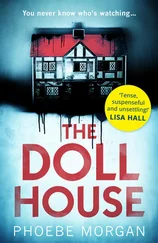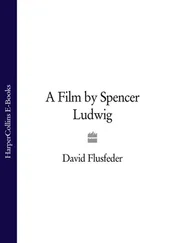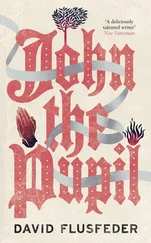‘What’s up, geezer?’
‘Nothing,’ he quickly said but then realized he had spoken defensive-aggressively, his customary tone, Shut-Out-Jeffrey, and anyway he could afford to be expansive today, because today he was flying to America, and his mother would be with him and his father was waiting for him and Jeffrey would be left three thousand miles away.
Edgar looked at the itinerary, which his mother had remembered to print out on her office computer. Friday: fly to New York. Change planes. Syracuse airport. Saturday & Sunday: time with grandmother Fay. Monday: Mon to New York; Edga r and father on the road. Tuesday —
‘Oh,’ said his mother. ‘Toast.’
‘I made it, actually,’ said Edgar, who wrote himself a mental note not to speak always so precipitously, better to allow loathsome Jeffrey to take the credit for his mother’s breakfast and then watch it rebound or be snatched away afterwards. Silence and cunning would be his watchwords.
‘Thank you, darling,’ said Mon, who was sitting at the counter in her ironic pink 1950s housecoat that she never bothered to wear unless Jeffrey was staying over. She chewed complacently on a triangle of toast and reached over to the refrigerator to pour herself a glass of orange juice and unwary Edgar failed to avoid the complicit wink that Jeffrey sent his way. Mon ate her toast and flicked through a magazine, one that Jeffrey had brought into the flat and which Edgar, when he was sure he was alone, did not find it beneath him to inspect.
‘Here’s a piece about that Japanese photographer you like so much.’
Jeffrey sniffed. He did not like that Japanese photographer any more. Mention of that Japanese photographer would elicit only scorn from Jeffrey. This had happened before, it would happen again; Jeffrey was slippery and quick to change in all his enthusiasms. When Mon naively said, ‘Oh there’s a piece here about that Japanese photographer/ Australian performance masochist/Canadian poet/ American lesbian you like so much,’ Jeffrey would already have, contemptuously and self-congratulatingly, moved on.
Edgar smiled to outface the world. Defiantly he mouthed the shape of his new name. Edgar was twelve, soon to be thirteen, and his name was not in fact Edgar, but Edward. Edgar was a preferment he had recently awarded himself, so far secretly. Edward and all its variants and diminutives (Ed, Eddie, Steady Eddie, The Edster) had long been unsatisfactory or loathed by him. Edgar he took as a graceful-sounding name, gently archaic, hinting at past glories, shadowy marble buildings behind vines. The creator of Tarzan was called Edgar; so was the writer of The Tell-Tale Heart .
‘The private-eye genre,’ said Jeffrey, ‘what is it about?’
They were sitting in the living room. Soon the minicab would be arriving to take mother and son to Heathrow. Edgar’s earphones were on his head and he drummed along to the music on the coffee-table even though both adults had asked him not to. Surreptitiously he lowered the volume. Here, in this temporary victory, he did not want to lose any advantage by relaxing his vigilance. He continued to drum as if he were still listening to his music but instead he listened to Jeffrey rehearse tomorrow night’s lecture. Mon, once his student, wanted to please her teacher. She offered suggestions. ‘It’s about truth,’ she said, ‘it’s about justice, the American Way; the private eye is a bruised Galahad in disguise, Christian myth transubstantiated, the good man in a godless world.’
Jeffrey looked bored throughout. He examined his hands and picked away dirt from beneath his thumbnails. The only time Jeffrey was interested sufficiently to look at his audience was when she said bruised .
‘Bruised? More than that,’ said Jeffrey. ‘Damaged. Impotence is what it’s about. Who’s the precursor of the private eye? Of course the cowboy heroes of the western, but mixed in with some Hemingway. Fiesta , the narrator who’s been damaged in the war, who can’t get it up, who will never be able to consummate anything.’
‘Jeffrey!’ warned Mon, who could get oddly prudish sometimes in the company of her son.
‘Please,’ said Jeffrey with pained expression.
‘Sorry,’ said Mon.
She pushed back her hair, which was red. She was wearing a leather jacket that creaked and which Edgar had suggested would be uncomfortable and hot to wear on the airplane, a black T-shirt and a long black skirt. Edgar was wearing what, after some very long time, and for which he had even consulted Jeffrey, he had settled on as his appropriate American outfit of long shorts, stripy short-sleeved shirt, sneakers and baseball cap worn backwards. He winced at his mother’s determination to please Jeffrey and Jeffrey caught the expression so Edgar turned it into the music-lover’s appreciation and drummed harder.
‘Hemingway,’ prompted Mon. ‘The narrator who’s been damaged in the war.’
Jeffrey glanced at his notes and consented to continue. ‘He can’t get it up. He’ll never be able to consummate anything. That’s where the private eye comes from. The mood of melancholy, yearning, frustration. He can’t please a woman, can’t satisfy any of them, not the blowsy blonde overripe tramps, not the rich men’s daughters who are driven by his disregard into lesbianism. So he’s got to walk in shadows. He’s got to drink to quieten some of the self-pity inside of him. Being beaten on the head by the buttside of a revolver brings him some kind of temporary release. But he’s lost, finding a dark path to get revenge on some of the whole men in his pathetic universe. If he can restore some of the order in the universe, maybe he can repair some of the disorder inside himself. But of course not, it’s a doomed quest. Some men have died, some women have suffered. The law is temporarily satisfied, but not our damaged hero. He’s alone, because he has to be, drinking himself stupid in his melancholy office.’
… But not Edgar. Edgar was the very antithesis of the generic private eye. He was neither hard-bitten nor hardboiled. He hadn’t seen too much—he’d hardly seen anything at all—and he was bursting, overflowing, with inaccessible juvenile potency.
Some conventional techniques of the traditional private eye were denied to him: he could not, for example, sit at a bar drinking whiskey. But he did have certain advantages all his own. He could blend into any crowd, particularly one of schoolchildren. No one would suspect him of a dangerous agenda. But he could not drive a car. And he still needed permission to stay out past supper-time.
2
Edgar liked airports. He liked airports and flying and pretty much everything connected with flight except birds, which brought out his squeamish side in some primitive way. He liked airplanes and he even liked the word ‘airplane’, with its airplaney shape, the a of the cockpit, the p and l of transverse wings. Mon didn’t mind airports in themselves, just what they represented. They contained shops and Mon liked shops, but these ones were signs of imminent flight and Mon did not like airplanes or flight. She was, as she told the weirdly cosmeticized woman at the check-in desk, a nervous flyer.
‘Don’t worry, Mrs …’ at which point the cosmeticized woman sneaked a look at the passports.
‘Ms,’ corrected Mon.
‘Excuse me. You’re in very capable hands. Would the young man like a window seat?’
The young man in question was blushing because he could see down the shirt-front of the check-in woman, her cleavage, the rise of her breasts, freckled and tanned, and his immediate response—or, even, quicker than immediate; as if the response might have preceded the stimulus, might, in some magical way, have induced it—was a stiffening of his penis followed by a necessary cupping of hands over his groin to hide the tell-tale bulge. Pressing himself against the desk was no good, because, in these difficult times, he had discovered that any contact, even for purposes of concealment, and with a material as uninflected with erotic value as veneered chipboard, would only exacerbate his aroused state.
Читать дальше












